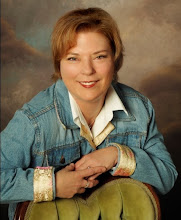Wednesday, April 13, 2016
Helping Your Child Understand Political Bullying
"Can we all be engaged and committed to political causes without resorting to personal attacks that can slide easily into bullying language? Our kids—future voters in not so many years—will benefit. Our democracy will be much the better for it."
Political Bullies and Your Child
by Gail F. Melson, Ph.D., author and researcher on child development and family relationships
This political season is one for the books. Regardless of political affiliation or views, many of us are hooked on the latest twists and turns of this spectacularly unprecedented and unpredictable political race for the presidential nominations in both the Republican and Democratic parties. Never before—at least in modern memory—have so many expectations been overturned, so many surprises surfaced.
Not the least of these surprises is the language of the leading contender (as of this writing) for the Republican Party nomination to run for president. Donald Trump regularly peppers his political speeches with insults, put-downs, and “potty words.” In fact, his litany of insults against opponents, journalists or anyone disliked comes straight from the grade school bullies’ playbook. He calls them “babies,” “losers,” “little,” “a nothing,” and urges them to “go home to mommy.” These short, simple words (pegged at a 2nd grade reading level) are precisely the words most often found in the verbal insults schoolyard bullies hurl at young children.
Surveys and polling don’t tell us how many children and teens are absorbing Mr. Trump’s speeches on television, radio, newspapers or social media. From one perspective, we hope the answer is: “A great many.” For any democracy to thrive, civic engagement should start early and build steadily as children mature. In this case, however, when we encourage children to watch, listen and pay close attention to the words of political actors in the current nomination race, we are also exposing them to classic bullying language and threats, this time coming from an important and influential adult. Do we seek to engage children and teens in the current political drama, or do we try to censor, protect, or ignore the bullying that has become part of it?
Read the entire article at Psychology Today>>
Subscribe to:
Post Comments (Atom)



No comments:
Post a Comment